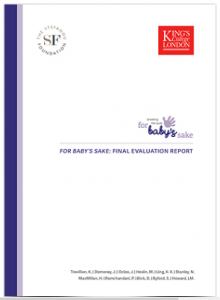
Respect the UK Domestic Abuse Charity has secured funding from the London Community Response Fund to offer free online training to Frontline Workers who support or have an interest in service users with domestic abuse issues.
Who is eligible to apply?
Workers from the third sector; local authorities; counsellors/therapists; university lecturers, students or researchers; police; housing officers; healthcare staff; policy-makers etc. – as long as the organisation they work for or the services they provide are based in Greater London.
Respect are adapting 4 training courses for online access:
- Working with male victims of domestic abuse Free online access for successful applicants 1-14 July. This training course helps frontline workers support male victims of domestic abuse. Participants will identify the domestic abuse experiences of male victims and the barriers to help-seeking; and learn how to use the Respect Toolkit for Work with Male Victims of Domestic Abuse, so they can better meet the needs of the men they work with.
2. Working with women using violence in intimate relationships Free online access for successful applicants 16-29 July. Women’s use of violence and abuse in intimate relationships differs from men’s in terms of motivation, context and impact. Women are capable of and do use violence and abuse in intimate relationships, whether heterosexual or same sex. Understanding the role of gender is important for the delivery of safe and effective interventions. This training course provides participants with knowledge about these differences and informs practice when working with women who use violence and abuse in intimate relationships.
3. Better engagement with perpetrators Free online access for successful applicants 31 July-13 August. This course will develop skills to engage in a respectful and supportive manner with perpetrators of domestic abuse. The course will give participants skills, such as early identification techniques, methods to increase engagement and motivation for change, and correct referral procedures and pathways. The course is ideal for anyone who wants to refresh their knowledge or would like an introduction to working with perpetrators.
4. Adolescent to parent violence and abuse Free online access for successful applicants 15-28 August. This course will increase participants’ awareness of the dynamics of adolescent to parent violence. It will explore current models of work, risk factors and common patterns of behaviour linked to this issue. The course gives special consideration to the difficulties that frontline workers may face when engaging with families.
The training is entirely online. Successful applicants will have access on Respect’s bespoke online platform, and will attend the training course, at a pace and times of their own choice, within the dates specified above. The training courses are broken down in small units to make learning effective and enjoyable. Interactive tools will keep learners engaged. Applicants need to ensure they are available to access the online training platform to complete the training of their choice within the dates above.
Places are allocated on a first-come, first-served basis, taking preferred options into account.
You can apply for these courses here.



